Tony Merriman (Director)
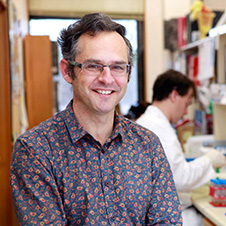 Tony Merriman is an Associate Professor at the University of Otago in Dunedin. His is a genetic epidemiologist and researches the causes of gout, including genetic and environmental (dietary and diuretic) causes and the way they interact. He obtained his PhD in Biochemistry at the University of Otago in 1993 followed by Post-doctoral training in human genetics at the University of Oxford (UK). Since 1998, he has led a research group at the Department of Biochemistry, University of Otago initially researching the causes of rheumatoid arthritis. From 2008 the group's primary interest switched to gout, given that gout has a particularly strong impact in New Zealand.
Tony Merriman is an Associate Professor at the University of Otago in Dunedin. His is a genetic epidemiologist and researches the causes of gout, including genetic and environmental (dietary and diuretic) causes and the way they interact. He obtained his PhD in Biochemistry at the University of Otago in 1993 followed by Post-doctoral training in human genetics at the University of Oxford (UK). Since 1998, he has led a research group at the Department of Biochemistry, University of Otago initially researching the causes of rheumatoid arthritis. From 2008 the group's primary interest switched to gout, given that gout has a particularly strong impact in New Zealand.
Phil Wilcox
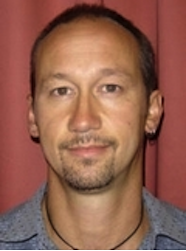 Phil Wilcox is currently a senior scientist at the NZ Crown Research Institute, Scion, and a Senior Research Fellow (part time) at the University of Otago. His PhD was in mapping disease resistance genes in forest trees and he has a background in molecular and quantitative genetics. He has led research projects in linkage and QTL mapping, association genetics in plant species, and recently led a cross-sector multi-organisation 'Virtual Institute of Statistical Genetics'. He also works in human genetics at the at the Dept of Biochemistry at the University of Otago. He is of Ngāti Rakaipaaka, Rongomaiwahine and Ngāti Kahungunu ki Wairoa and pakeha descent, and is the mandated spokeperson for Ngati Rakaipaaka regarding a health and ancestry study undertaken with this iwi a number of years ago. He has also developed engagement frameworks for scientists working with Maori communities and is currently working with a team of Māori researchers developing culturally appropriate guidelines for biobanking and medical genomics. He recently has been appointed as a 'Maori champion' in the National Science Challenge 'New Zealand's Biological Heritage' as well as the BioProtection Centre of Research Excellence.
Phil Wilcox is currently a senior scientist at the NZ Crown Research Institute, Scion, and a Senior Research Fellow (part time) at the University of Otago. His PhD was in mapping disease resistance genes in forest trees and he has a background in molecular and quantitative genetics. He has led research projects in linkage and QTL mapping, association genetics in plant species, and recently led a cross-sector multi-organisation 'Virtual Institute of Statistical Genetics'. He also works in human genetics at the at the Dept of Biochemistry at the University of Otago. He is of Ngāti Rakaipaaka, Rongomaiwahine and Ngāti Kahungunu ki Wairoa and pakeha descent, and is the mandated spokeperson for Ngati Rakaipaaka regarding a health and ancestry study undertaken with this iwi a number of years ago. He has also developed engagement frameworks for scientists working with Maori communities and is currently working with a team of Māori researchers developing culturally appropriate guidelines for biobanking and medical genomics. He recently has been appointed as a 'Maori champion' in the National Science Challenge 'New Zealand's Biological Heritage' as well as the BioProtection Centre of Research Excellence.
Lisa Matisoo-Smith
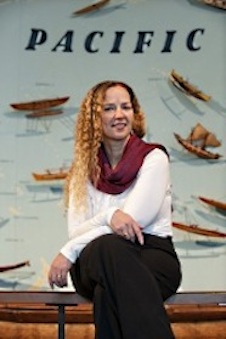 Lisa Matisoo-Smith is the Professor of Biological Anthropology in the Department of Anatomy at the University of Otago, and a Principal Investigator in the Allan Wilson Centre for Molecular Ecology and Evolution and the National Geographic's Genographic Project. She is interested in understanding human history and human variation in general, but her primary area of interest is in looking at the biological evidence for the human settlement of the Pacific. She applies both ancient and modern DNA techniques to reconstruct migration pathways, and is increasingly interested in how human history and population origins may be related to some of the health issues facing Pacific populations today. Lisa works throughout the Pacific, but her most recent work has focused on New Zealand, Tokelau, Papua New Guinea and South America.
Lisa Matisoo-Smith is the Professor of Biological Anthropology in the Department of Anatomy at the University of Otago, and a Principal Investigator in the Allan Wilson Centre for Molecular Ecology and Evolution and the National Geographic's Genographic Project. She is interested in understanding human history and human variation in general, but her primary area of interest is in looking at the biological evidence for the human settlement of the Pacific. She applies both ancient and modern DNA techniques to reconstruct migration pathways, and is increasingly interested in how human history and population origins may be related to some of the health issues facing Pacific populations today. Lisa works throughout the Pacific, but her most recent work has focused on New Zealand, Tokelau, Papua New Guinea and South America.
Mik Black
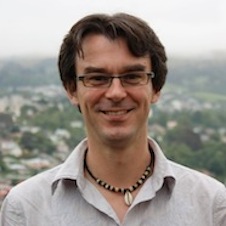 Mik's research focuses on the development and application of statistical methods for the analysis of data from genomics experiments, with a particular emphasis on the genomics of human disease. Recent work includes: detecting evidence of selective pressure in the human genome, developing methods for detection genome wide copy number variation, predicting risk of pre-elampsia in first-time pregnancies, identifying new cancer-causing genes, and investigating links between proliferation and immune response in breast cancer. Mik is also involved in the provision of high performance computing tools for the NZ research community via the New Zealand eScience Infrastructure (NeSI), and the development of a national genomics infrastructure through New Zealand Genomics Ltd (NZGL).
Mik's research focuses on the development and application of statistical methods for the analysis of data from genomics experiments, with a particular emphasis on the genomics of human disease. Recent work includes: detecting evidence of selective pressure in the human genome, developing methods for detection genome wide copy number variation, predicting risk of pre-elampsia in first-time pregnancies, identifying new cancer-causing genes, and investigating links between proliferation and immune response in breast cancer. Mik is also involved in the provision of high performance computing tools for the NZ research community via the New Zealand eScience Infrastructure (NeSI), and the development of a national genomics infrastructure through New Zealand Genomics Ltd (NZGL).
Mere Roberts
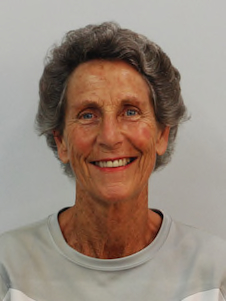 Dr. Mere Roberts is a New Zealander of Maori (Ngati Apakura, Ngati Hikairo) and Pakeha descent. A biologist, she has been a staff member of the University of Auckland's Schools of Medicine and Biological Sciences. In 2004 she was appointed Head of Science at Te Whare Wananga o Awanuiarangi in Whakatane before returning to the University of Auckland as an Honorary Research Fellow in Anthropology. Mere has represented Maori on a number of committees including the Environmental Risk Management Authority; the Ministerial Advisory Committee on Biosecurity and the UNESCO (NZ) science subcommittee. She has also served on the Board of two Crown Research Institutes (Forest Research, now Scion, and ESR). Her academic interests are in cross-cultural understandings particularly in the area of indigenous science e.g. matauranga putaiao (Maori scientific knowledge) and its interface with mainstream science.
Dr. Mere Roberts is a New Zealander of Maori (Ngati Apakura, Ngati Hikairo) and Pakeha descent. A biologist, she has been a staff member of the University of Auckland's Schools of Medicine and Biological Sciences. In 2004 she was appointed Head of Science at Te Whare Wananga o Awanuiarangi in Whakatane before returning to the University of Auckland as an Honorary Research Fellow in Anthropology. Mere has represented Maori on a number of committees including the Environmental Risk Management Authority; the Ministerial Advisory Committee on Biosecurity and the UNESCO (NZ) science subcommittee. She has also served on the Board of two Crown Research Institutes (Forest Research, now Scion, and ESR). Her academic interests are in cross-cultural understandings particularly in the area of indigenous science e.g. matauranga putaiao (Maori scientific knowledge) and its interface with mainstream science.
Field research has included a nation-wide study of Maori perceptions of the effects of novel biotechnologies on Maori values and beliefs.
Albert Laurence
Albert is of Kiribati decent and has strong links to many Pasifika communities in Otago, the South Island and New Zealand. He has a background in the Pasifika health sector where he has held Governance and Executive roles for the past 5 years. Albert also runs his own consultancy firm which has a particular focus on Maori and Pacific workforce development. Albert's previous background as a life scientist provides a strong interest in genetics and growing Pasifika capability in genetics. Attracting capable Pasifika students to genetics is of great importance as he believes that genetic tools and research will help provide valuable information for Pasifika families, communities and health providers. To ensure the information and research is translatable and of benefit to communities it is vital that Pasifika are involved throughout the process.
